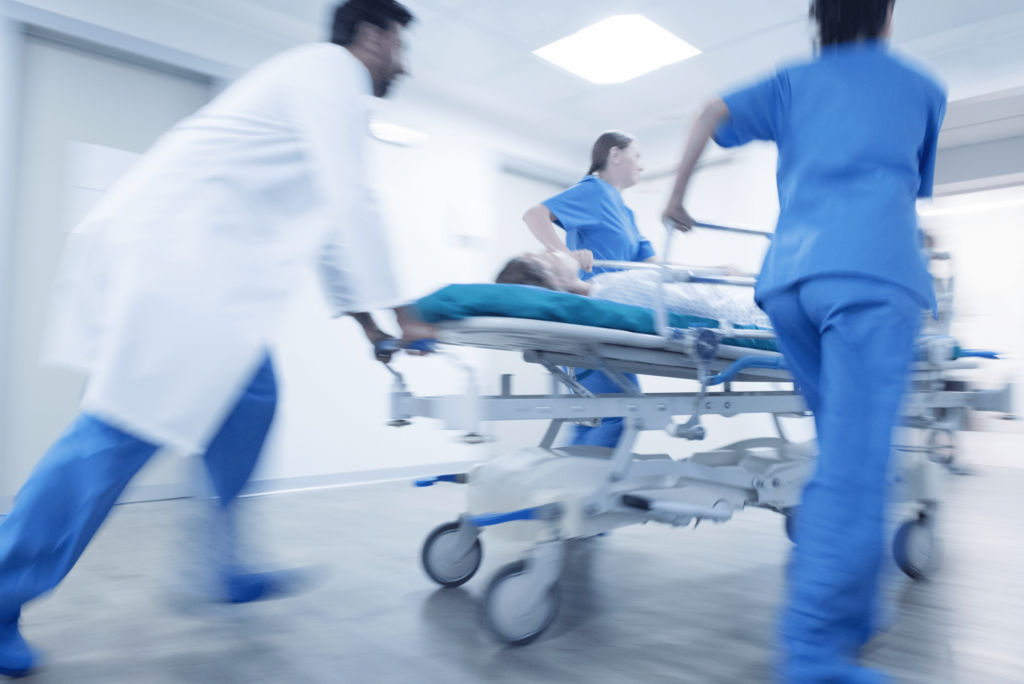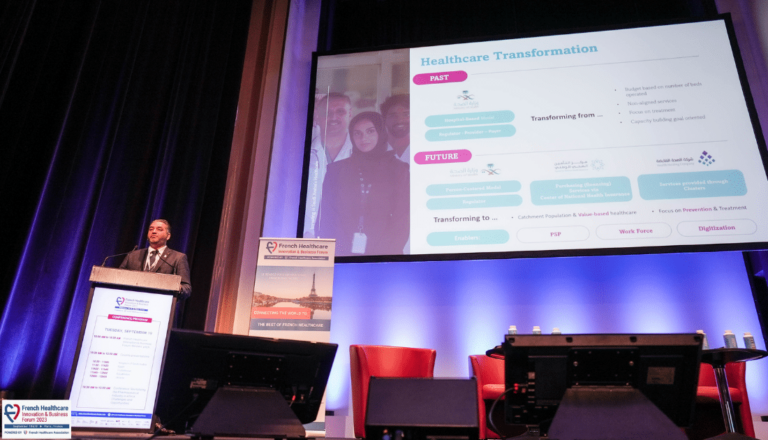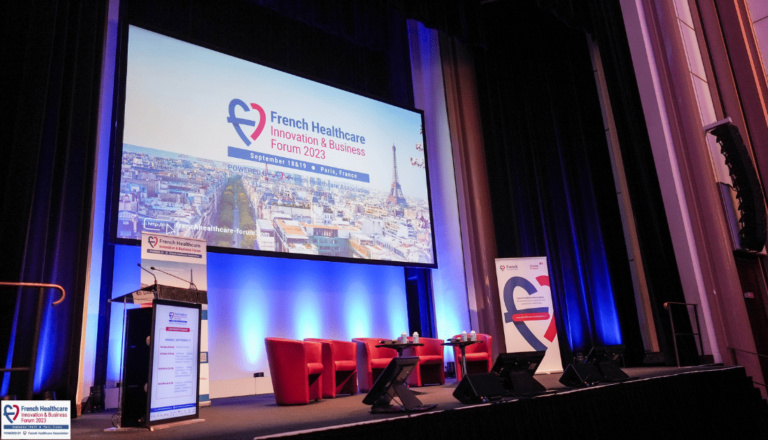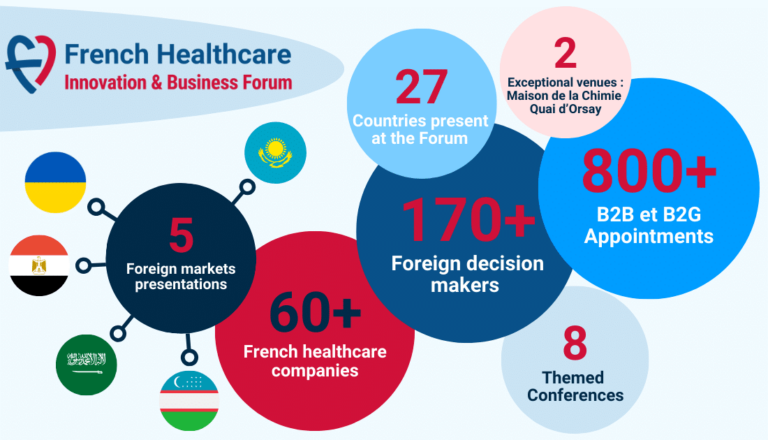Health Infrastructure
The backbone of French healthcare, the Hospital System, with its 3,089 establishments, is renowned for its medical excellence. At the cutting edge of international scientific knowledge, its care teams benefit from innovative technology and healthcare products.
An integral part of the nation’s identity, French hospitals are held in the highest regard around the world.
The fruit of a lengthy history, they organize some of the most complex care, they are the primary promoter of research and dissemination of therapeutic innovations, one of the major players in the training of healthcare professionals and the guarantor of access to care, with an exemplary nationwide network that guarantees rapid access to the best care for all.
An ageing population, the steep increase in the incidence of chronic diseases and the acceleration of the digital revolution have considerably altered our approach to healthcare. The hospital system, which is undergoing a rapid transformation to meet these challenges, demonstrated its agility in response to the Covid-19 health crisis. Its strengths are numerous, starting with its human resources.
Excellence in care for all and high-level technical expertise
With each reform to the healthcare system – the most recent being “Ma Santé 2022” (My Health 2022) – the range of hospital treatment available has been organized into different levels of care.
These are: community care (medicine, geriatrics, rehabilitation) at local hospitals; specialist care (surgery, maternity) in larger hospitals; and ultra-specialized care (transplants, rare diseases) at the 32 university hospitals (CHU) home to staff with highly specialized skills. What is the aim? To enable access for all to the best care in the safest conditions, by fostering shorter hospital stays, with fewer but more efficient technical platforms.
At the end of 2020, Lyon University Hospital was the first hospital in France to be equipped with a radiotherapy system complete with a 1.5 Tesla MRI. Thanks to real-time image integration, the Elekta Unity MR-Linac enables medical professionals to view tumors with high precision, whatever the organ, and adapt treatment at each session. An ambitious clinical and fundamental research project has been implemented to support the acquisition of this MRI. Meanwhile, Bordeaux University Hospital has just acquired, for €3.4 million, two new surgical robots for use in urology, gynecology, cardiac and thoracic surgery. It is now, after the AP-HP, the best equipped center for robotic assistance, enabling the most precise and least invasive surgery possible.
Places of medical, as well as organizational and economic excellence, private establishments, another key part of the French healthcare offer, are at the fore of outpatient surgery and enjoy flexibility, enabling them to quickly incorporate innovations. Their expertise in managing establishments, the creation of entirely new structures and the training of hospital teams is recognized internationally.


Leadership in healthcare research and innovation
France’s university hospitals are entrusted with a threefold mission: care, teaching and research. Bringing forward clinical research, creating knowledge and communicating it are all written in the hospital workers’ DNA.
This French model, the envy of many countries and founded on interaction between doctors and researchers, attracts talent through world-class public research institutions such as the CEA, CNRS, Inserm and the university hospital institutes.
The production of scientific publications is particularly dynamic in oncology (more than 59,000 publications between 2010 and 2019), enabling considerable progress. Over 40 years, the prognosis for childhood acute lymphoblastic leukemia, for example, has changed dramatically, with mortality falling from over 50% to less than 5%. Scientific advances are turned into therapeutic innovation, through a synergy with the nation’s universities, research organizations and pharmaceutical industry. The private hospitals and clinics are also now fully involved in and committed to applied healthcare research and benefit from an ambitious public funding model for research and innovation activities.
The hospital, a key player in optimizing care pathways
For the past fifteen years, there has been an undeniable movement towards opening hospitals up to their environment, whether it is other public establishments integrated into the GHT (regional hospital group), private hospitals, city medicine or the medico-social sector. This coordination facilitates the implementation of new personalized care pathways, with better organization of the upstream and downstream parts of a hospital stay. For instance, in Nouvelle Aquitaine, a health cooperation group (Nova) was established in early 2021, bringing together the region’s three university hospitals to work on healthcare, training, research and innovation.
The forthcoming roll-out of the access to care service (SAS) is also based on this close cooperation between the city and the hospital. Via a joint telephone number for hospital emergency professionals from the SAMU (emergency medical service) and city doctors, the SAS is dedicated to providing care adapted to the needs of the patient and to relieve congestion in emergency rooms. Initially specific to French-Belgian practice, the SAMU, a call regulation center for medical and health emergencies within a given geographic area enabling medical responses suited to the needs of each patient, is now available in similar forms in many countries. The future access to care service, which is expected to be in widespread use in 2022, is a new organizational model which France can now offer to its foreign partners, and which draws on the use of digital coordination tools.
The exceptional responsiveness of France’s hospital workers to the health crisis
The pandemic revealed the resilience of French hospitals in the face of an unprecedented crisis. The ease with which the hospital workers adapted to the situation, their professionalism, their unfailing commitment and solidarity, the swift redirection of research efforts, and the development of teleconsultation are all illustrations of this.
Within 48 hours, organizations were transformed, making it possible to double the number of intensive care beds, reorganize wards, recruit and train staff, and set up screening and vaccination channels, etc. The university hospital model, which institutes continuing ties between the research community and hospitals, demonstrated all its worth and enabled knowledge sharing on an international level and optimal patient care.
The determination to improve the efficiency of chronic disease management, the capacity to assimilate innovative international practices, the collaboration between public authorities and the private sector to ensure equitable access to healthcare services and products, and the quality of the initial and continuing training for healthcare personnel are just some of the key examples demonstrating the excellence of the French hospital model, which is widely admired and exported abroad.

The hospital sector in figures
-
3089
hospitals
-
408,245
beds
-
12,4
million patients hospitalized once or more per year
-
645
emergency structures
-
104
SAMUs (emergency medical services)
-
466
SMUR (mobile emergency and resuscitation services)
Healthcare institution certification, a guarantee of quality
In place for the past 20 years, the compulsory certification of all public and private healthcare establishments is the exclusive prerogative of the Haute Autorité de Santé (HAS) and takes place every four years. It is based on particularly demanding criteria. These include: the risk of infection, pain management, drug management and the policy for improving the quality and safety of care.
Five French hospitals in the top 100 worldwide
- The Pitié-Salpêtrière AP-HP University Hospital (Paris): 8th.
- Georges Pompidou AP-HP Europan Hospital (Paris): 19th.
- Claude-Huriez CHU Hospital (Lille): 41st.
- Pellegrin Hospital Group (Bordeaux): 59th.
- Saint Joseph Hospital (Paris): 86th.
Source: Newsweek’s World’s Best Hospitals 2023: https://www.newsweek.com/best-hospitals-2023

France offers its expertise in hospital construction and management internationally
The “Guide de bonnes pratiques de construction et exploitation hospitalières françaises à l’international” (Guide to Best Practices in French Hospital Construction and Operation Abroad) (AFNOR SPEC S99-120 April 2019) is a compilation of the main guidelines when developing a hospital project, including the design, construction and operation of a healthcare facility, for which French hospital key players offer their expertise. This guide is intended to assist hospital endeavors abroad in a quality-driven approach, paving the way for these establishments to become accredited.
In France, the Haute Autorité de Santé (HAS), an independent public authority, the aim of which is to contribute to the regulation of the healthcare system through quality and efficiency, is the institution responsible for the compulsory certification of healthcare institutions.
Our heartfelt thanks to Lamine Gharbi, president of the French Federation of Private Hospitals and Clinics (FHP); Edouard Couty, national mediator for the staff of public health, social and medico-social establishments; Yann Bubien, director general of Bordeaux University Hospital; and Dr Olivier Claris, neonatologist pediatrician, president of Lyon University Hospital’s Medical Commission, for sharing their experiences.





